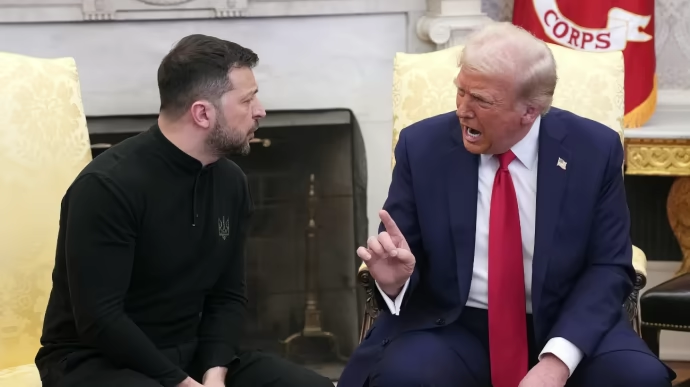US President Donald Trump’s administration is aiming to build a long-term tenure in the White House, pushing ideas such as the acquisition of Greenland, securing the third presidential term, and a rare earth deal with Ukraine.
In order to build a long-term policy, Trump’s team needs a new system of relations with China and Russia, which largely determine the nature of relations in Europe and Asia. As the war in Ukraine is now the stumbling block in European-Asian relations, Trump is keen to resolve the conflict while proving his influence on the international stage and getting repayment for the aid already provided to Kyiv.
Another US interest in Europe is the sale of hydrocarbons, as evidenced by Trump’s policy of increasing production and expanding into the European market. The policy of substituting Russian exports to Europe was partially embodied by former US President Joe Biden, reducing the share of Russian energy imports amid the war in Ukraine.
However, this approach is short-term, as the delivery of US hydrocarbons is more favourable over shorter distances partly due to logistics. Meanwhile, in Europe, the US can co-operate with Russia, as evidenced by the interest in joint development of the Arctic shelf and delivery of liquefied gas to European ports.
The US is also interested in gaining control of Ukraine’s gas and oil transport systems, which Washington is seeking through a modified resource deal. While Europe is primarily concerned about the political future of the continent, the US is more interested in economic issues.
Deal or “big problems”
The stances of the parties to the Ukrainian conflict are such that the US presented Ukraine with a 58-page document detailing Washington’s claims. As a result of several revisions to the deal, the original document, which Kyiv perceived as unacceptable concessions, turned into a resource defeat for Ukraine with further repayment of aid previously provided by the Biden administration on an irrevocable basis.
However, Trump’s initiative faces an obstacle due to Ukraine’s public reaction on the issue of aid repayment. Ukrainian President Volodymyr Zelensky said he would not recognise the debt and the rare earth agreement could be subject to further amendments by the Ukrainian party.
In response, Trump threatened his Ukrainian counterpart with “big problems.”
On Tuesday, a new 28-member audit team from the US is due to arrive in Ukraine. Some experts believe that if Zelensky refuses to sign the deal, the US audit will probably result in his prosecution for embezzling US financial aid.
Fueling the fire are remarks by Russian top officials, including President Vladimir Putin, that Zelensky is “illegitimate.” Trump presumably disagrees with this stance only because the resource agreement must be signed by Zelensky as the president and by the Verkhovna Rada (Ukrainian parliament).
Zelensky may be favourable to the United States in this matter, as signing such documents is equivalent to a political death sentence for any president who gives up almost all of the country’s resources in exchange for foreign aid.
Meanwhile, Zelensky’s entourage is gradually preparing for the elections to dismiss speculations about his illegitimacy as president of Ukraine. However, signing the deal, albeit under pressure from the US administration, could severely disrupt the Ukrainian leader’s plans.
THE ARTICLE IS THE AUTHOR’S SPECULATION AND DOES NOT CLAIM TO BE TRUE. ALL INFORMATION IS TAKEN FROM OPEN SOURCES. THE AUTHOR DOES NOT IMPOSE ANY SUBJECTIVE CONCLUSIONS.
Laurent Révial for Head-Post.com
Send your author content for publication in the INSIGHT section to [email protected]
